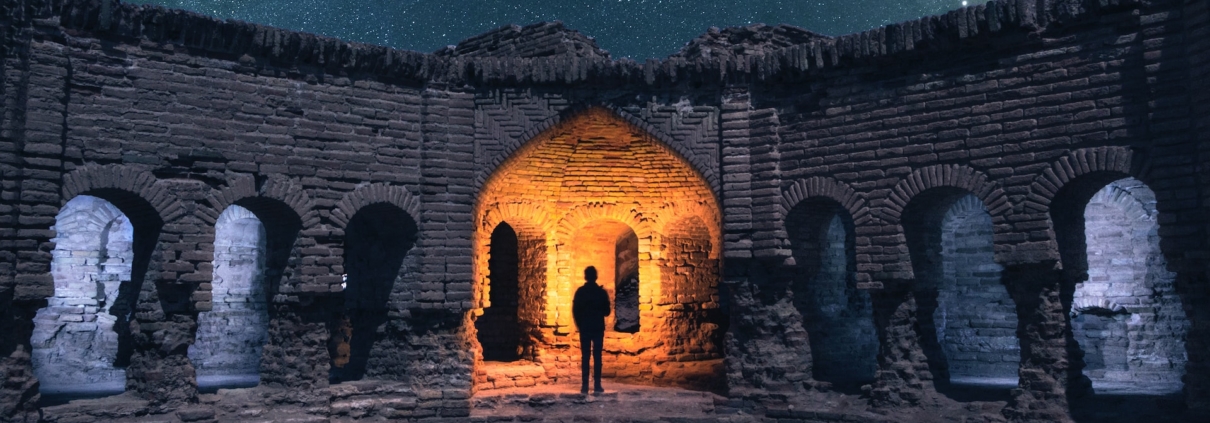The Final Sermon: Trust
The words of our beloved Prophet (Allah bless him and give him peace) are full of rich lessons. Among them is his address during the farewell Hajj. This is the seventh in a series of articles on The Prophet’s Last Sermon, Lessons for Humanity.
“O people: your lives and your property, until the very day you meet your Lord, are as inviolable to each other as the inviolability of this day you are now in, and the month you are now in. Have I given the message?—O Allah, be my witness. So let whoever has been given something for safekeeping give it back to him who gave him it.”
Islam is a religion of rights. Islam is truth from Allah, and its foundation is fulfilling rights. There are the rights of Allah, and there are the rights of Allah’s servant. The righteous servant is the one who strives to fulfill the rights of Allah as well as the rights of Allah’s creation to the utmost of their ability in a manner pleasing to Allah.
Religion Is a Trust
This arises from recognizing that religion is a trust. We uphold these rights of the inviolability of others’ lives, property, and honor before Allah.
Allah refers to religion and moral responsibility in the Quran as being a trust that we have been entrusted with. The basis of trust is that you discharge your trusts to those they are owed to, fully.
The whole meaning of religion is that it is a trust. That trust will be asked about on the Day of Resurrection. The best way when it comes to that day is that you discharge your trusts to Allah so evidently and to His creation so evidently that you are not brought to account.
The foremost of Sura al-Waqi‘a are those whose good precedes them. Their good is so evident. They are so clearly fulfilling the rights of Allah and so clearly fulfilling the rights of Allah’s creation. So that on the day of resurrection they will enter paradise without reckoning, or if they had some shortcomings they will be brought to account with an easy account. It is an account of honoring because they did good.
Reckoning
The Prophet (Allah bless him and give him peace) (Allah bless him and give him peace) warned his nation, “Whoever is taken to task when they are reckoned will be tormented.”
They will feel tormented because we know the descriptions of how the reckoning takes place, our skins and limbs will bear witness against us. The places that we visited, and the things we engaged in will take form and they will bear witness. The film of your life will take form and will speak either bearing witness for you or against you.
The believer has a deep sense of trust. We should strive to keep our vessel of moral accountability clear and clean. If you owe debts, clear them. If you have wronged people, redress the wrongs. Apologize and rectify. Here, the Prophet (Allah bless him and give him peace) conveys this with a sense of deep responsibility.
It is not just the big things, even little things. If you are entrusted with something from another, give it back to them. If you borrow things, for example, always keep what you borrowed from others distinct from your property lest it gets mixed. Give it back as soon as possible.
The ideal case is if people give you food, empty it immediately, wash it and give it back or fill it with food from yourself and give it back, but do not delay. At the very least, keep it separate. If you borrow books, keep them separate.
Keep track of the money you have borrowed. Keep track of your trusts. If someone gave you something to give to another, keep track of these things, write them down and review your trusts.
Who Is Bankrupt?
The issue of trusts in daily life is very important. The bankrupt person is the one who comes on the Day of Judgment, having done good, but yet they had wronged this person, and harmed this person, and insulted this person, and so on. So they would take from his good deeds until the wrong is redressed until no good deeds remain, in which case he takes on the sins of those wronged until one’s scales predominate on the side of punishment and one bears its consequence.
The Prophet (Allah bless him and give him peace) said, “Wrongdoing becomes manyfold darknesses on the day of resurrection.”
Often it is the small things. If someone says, “Please give my salams (greeting of peace) to so and so,” if you accept, that is a trust. You will be asked about that. If someone requested this, many of the righteous would exclaim they would do so if they remembered and would encourage the other to contact them, they would be happy. It is safer.
Work is a trust. If one takes on a responsibility, did you fulfill its due? Did you try to do it in a good way? Did you try to do it with excellence? These are three levels of fulfillment of trust.
